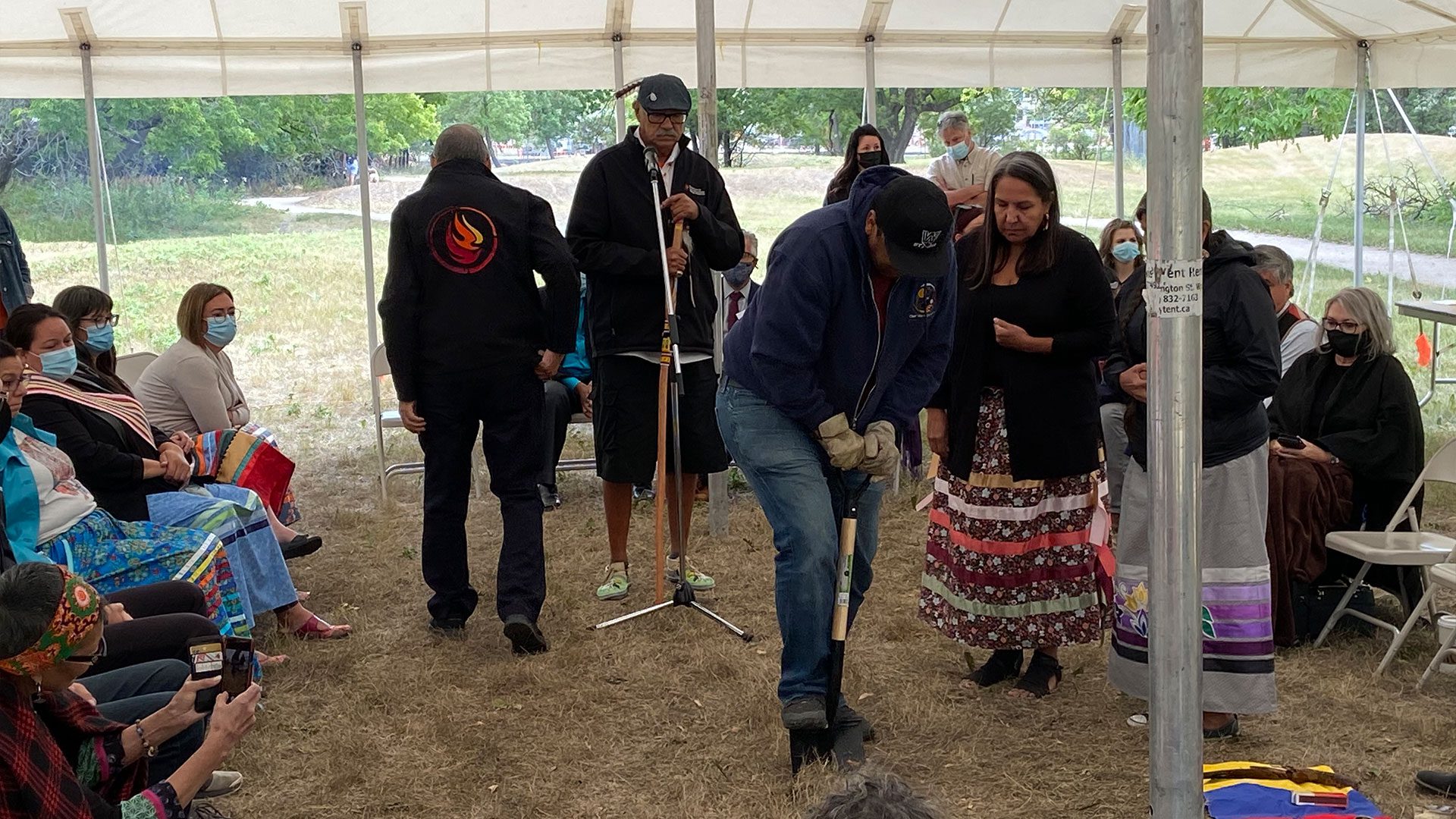The National Centre for Truth and Reconciliation (NCTR) will soon have a new home in Winnipeg.
Thursday morning saw survivors, elders and dignitaries blessing the land where the new centre will sit on the campus of the University of Manitoba in Winnipeg.
For many in attendance, it was an emotional day.
“It means that we’re able to start on this road with the way it needs to be done. No political interference, no people you know trying to say you know you don’t need that. We’ve gone through that a long time and finally we’re, this is going to be Indigenous-led, it’s going to be the way we see things that need to be done,” said residential school survivor Wanbdi Wakita.
Another survivor, Eugene Arcand, says he doesn’t think this day would have happened without the discovery in Kamloops.
“I want to acknowledge the 215 children that were found in Kamloops. I really honestly don’t feel that we’d be sitting here today if it wasn’t for those children waking up the world,” said Arcand.
“The waking up of the world by the 215 children truthfully has changed this country and is going to continue to change this country.”
Survivors and Elders spoke about the significance of the site and there were also ceremonies to celebrate the land that will be used as the new home.

The new site will provide NCTR with the space it requires for the work mandated by the Truth and Reconciliation Commission and survivors.
“You know that centre is going to be a ceremonial space, there will be exhibits there, we hope to have and preserve all of the survivor’s statements that were given during the Truth and Reconciliation Commission a place to live so that students or families and researchers and others can come in and listen to them and hear what happened to them in the schools,” said Stephanie Scott, executive director of the NCTR.
“Canadians really need to understand what happened in residential schools it hasn’t, it’s not in the past. It’s going to continue into the future. We hope that those children’s voiced continue to raise education so that we can learn, understand and work together because until we do that, reconciliation is not going to exist. We need to know the truth before we truly move forward in this country.”
She added it’s important to have an Indigenous space, one that promotes learning and cares for survivor’s statements, residential school records, and sacred objects to keep them safe for future generations.
“We need a large space for Indigenous and non-Indigenous Canadians to come together to learn, to understand the true history of residential school and to be educated, to understand that this is not the past, this is present. We’re still living today with the legacies of what happened,” she said.
Scott said the NCTR has a five year plan for the new building with a funding goal of $100 million.










